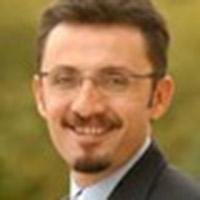The governing Justice and Development Party, or AKP, is taking action for constitutional changes. First, Prime Minister Recep Tayyip Erdoğan announced plans for amendments in the following four categories: ombudsmanship, Turkey deputyship, making political party closures more difficult and granting the right for individuals to apply to the Constitution Court.
Then, the AKP’s legal team led by Deputy Prime Minister Cemil Çiçek added three more articles unexpectedly. Erdoğan will make the final decision about the package at the beginning of the week. How likely will the package be adopted in Parliament? It seems rather unlikely. The AKP holds 338 seats in Parliament. And 367 votes are needed for the approval of a constitutional change without a referendum. If the number of votes remains between 330 and 367, an amendment is put to a public vote.
The CHP previously suggested "limiting parliamentary immunities" as a pre-condition to support constitutional amendments. But the AKP rejected the condition. This time, the AKP has reached a point where "we have no pre-condition and can discuss immunities as well." However, the CHP now set a new criterion: sincerity. The CHP spokesmen say, we will never sign amendments with the AKP because we don’t believe their sincerity. For Parliament, arithmetic proves amendments are difficult unless the AKP considers a referendum. In this case, the AKP may say, we tried but the opposition blocked the changes. Then, amendments may be shelved till the next general elections.
SECOND ARTICLE
When will Baykal seek party change?
A period of transformation, or change, is being voiced in the CHP since Kemal Kılıçdaroğlu became a shining star during the March 29 local elections. In fact, the CHP made some changes in its bylaws and prepared infrastructure for a new look in the pre-election period. Over a month has passed since the local polls and the CHP’s new look is still being delayed. "We’ll do it," says Baykal. Then, when will a change take place? The CHP general convention gathers in June 2010. Though limited, some sort of a change will take place in the CHPÉ The CHP’s past doesn’t allow radical changes in the body. We’ll wait and seeÉ


